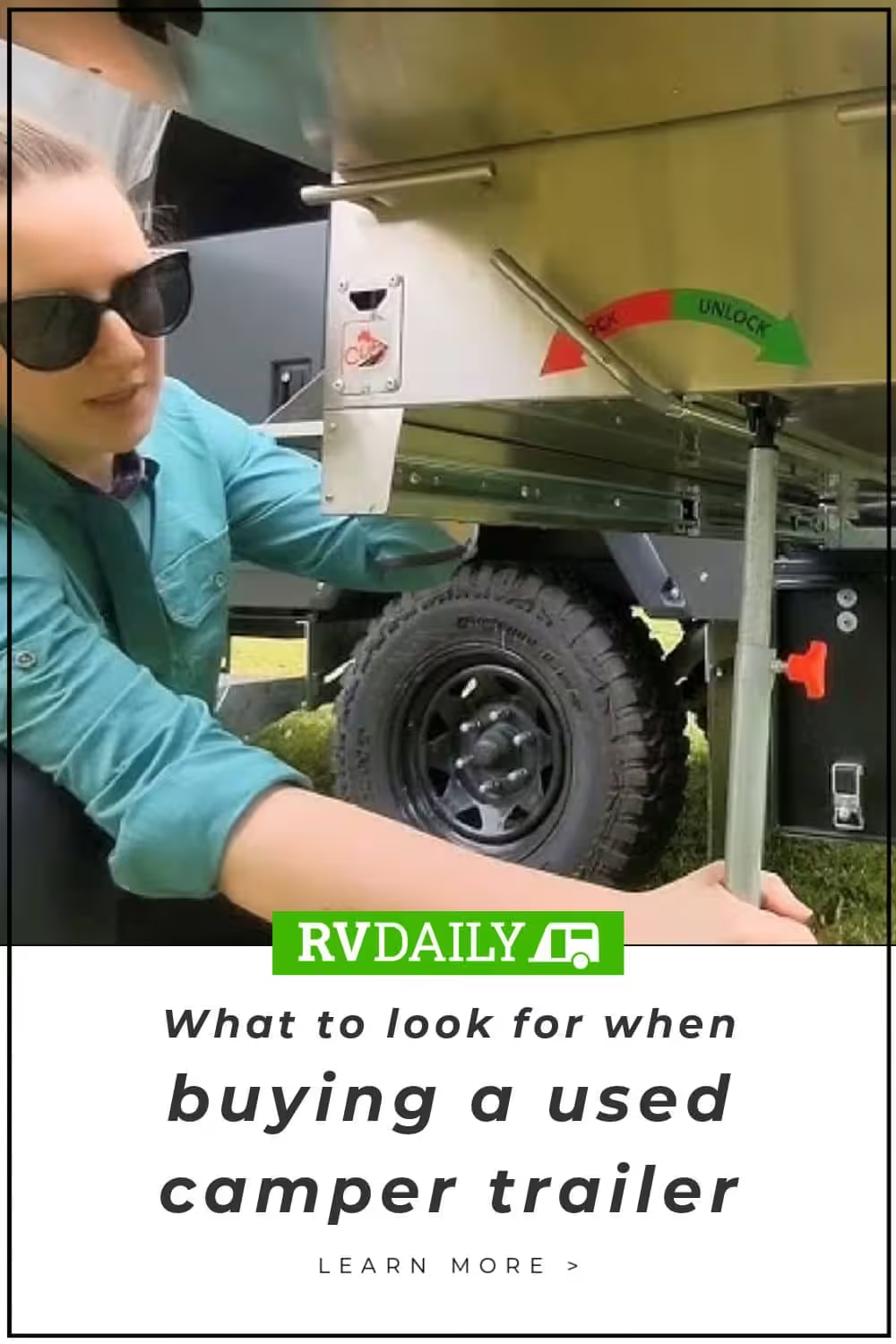What to look for when buying a used camper trailer
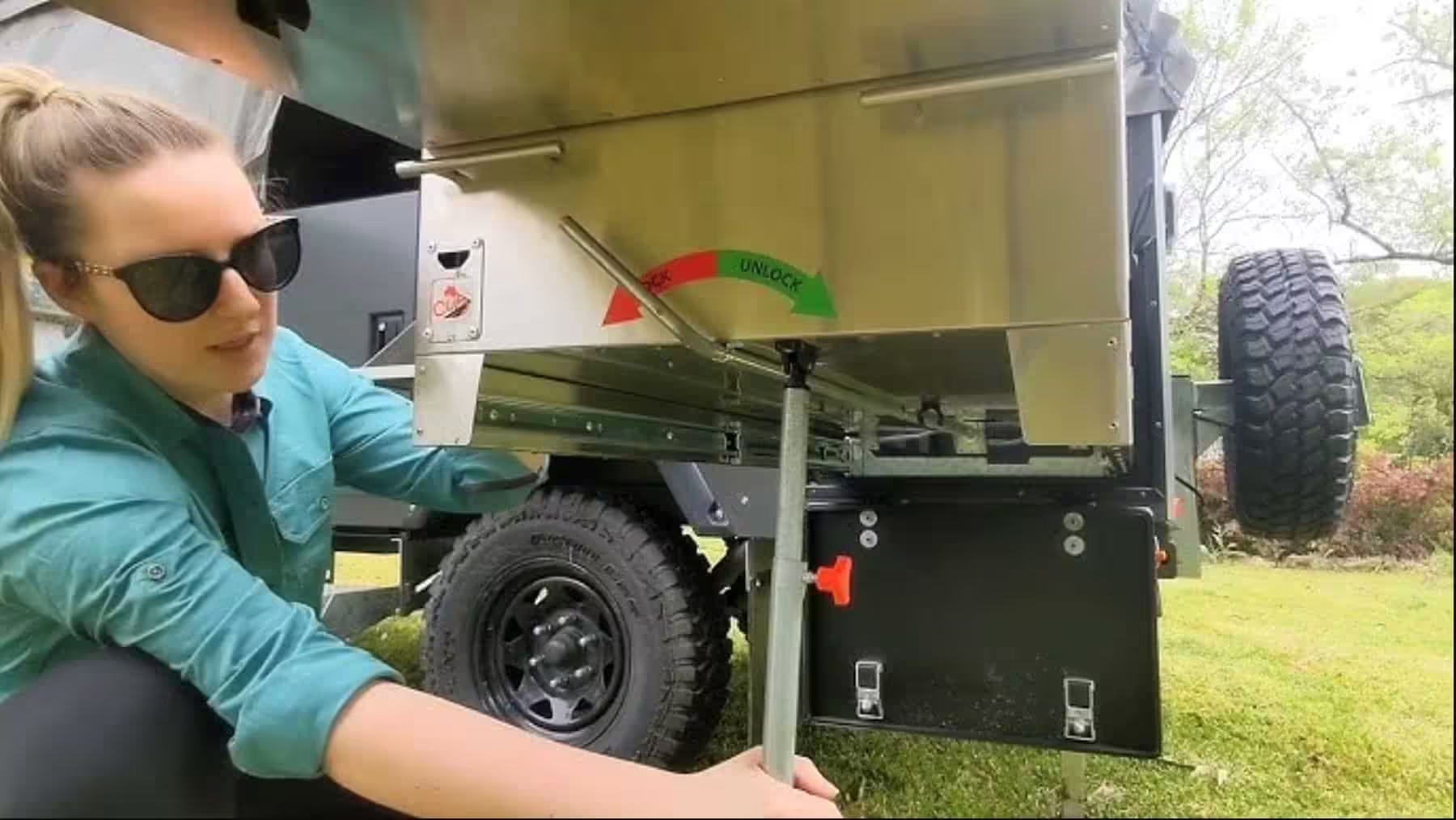



In the market for a second-hand camper? We’ve got you covered with this comprehensive guide on what to look for, what to avoid and what to run away from when buying a used camper trailer.
The cost of living is going bananas right now and the first thing in the family budget to get downsized is often the toys and lifestyle purchases. Many of us are doing it rougher than Barnaby Joyce on the turps. A lot of folks’ plans for buying a new camper have been taken off the front burner, put on the back burner, then removed and put on the counter, then finally thrown out the window as the idle contemplation of how much you’d get for your least-favourite child on the black market kicks in.
But what about buying a used camper trailer? There’s a bunch of them on the market, and they’re invariably a chunk of cash cheaper than the new units. Seems like an easy way to save a few bucks while being able to get away still, right?
Well, yes and no. Yeah, you’ll save some coin. But if you choose the wrong camper or overlook something important, that saved money can go up in a blaze of running repairs that can all too quickly overtake the cost of buying a new camper.
Luckily, we know our way around buying a camper trailer here at RVDaily. So we’ll share our tips and tricks with you and provide a solid guide on what to look for, what to avoid, and what to walk (if not run) away from.
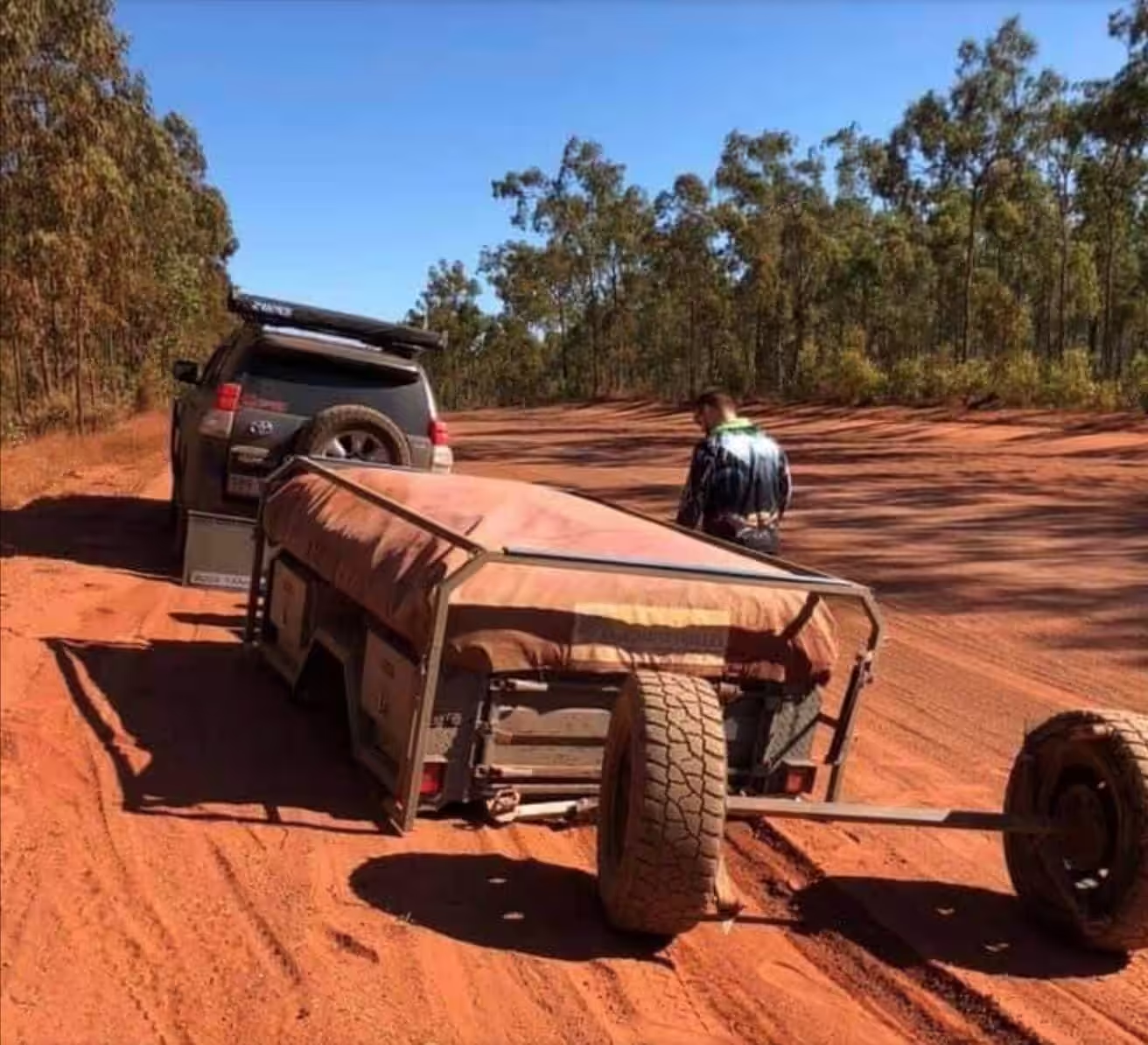
You have a few options for buying a used camper trailer. All with their ups and downs, but the list essentially breaks down like this:
This is your Facebook Marketplace, your Gumtree and your local classifieds options. While you can pick up a bargain from a private seller, you have to keep your wits about you. Why? Because unscrupulous individuals like to get rid of their campers due to problems they neither want to fix nor tell you about (which we’ll tell you how to avoid in a minute).
We live in an age of online reviews, and Googling the manufacturer you’re thinking of buying from is a no-brainer. Honestly, most dealers are great, and while their prices are a little steeper, they often have warranties and full check-overs as part of their services. However, there’s always a bad apple or two in every cart. So do your research and avoid Dodgy Dave’s Definitely Not Dilapidated Camper Sales.
Auction houses that have bought campers from estates or bankruptcies often just want to move them on quickly and cheaply. Bargains can be found, but as with anything that’s used: buyer beware. Check it out in person and, if possible, bring a mate along to give it a solid going-over as well.
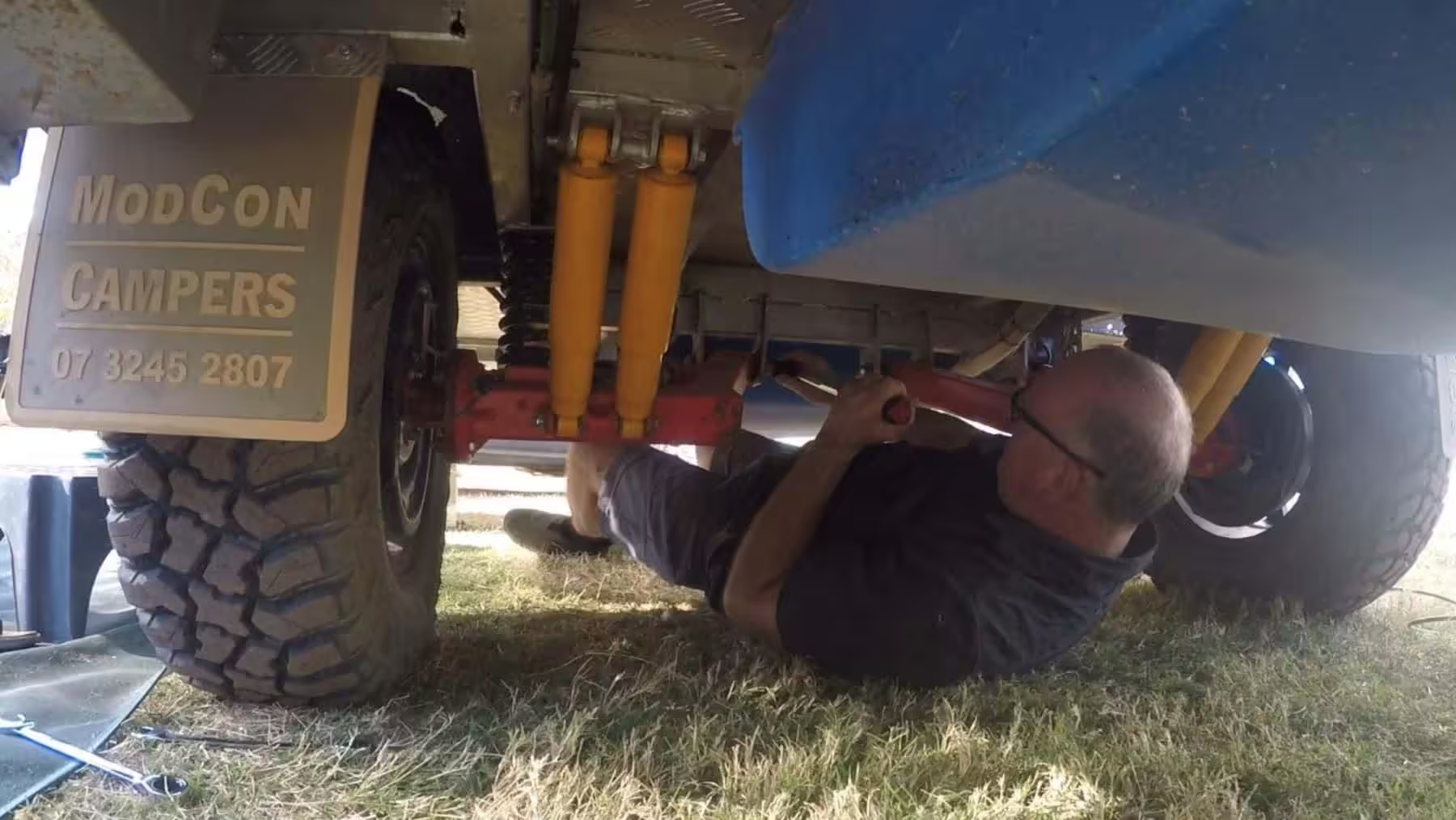
Ah yes, the age-old question. Do you buy a top-shelf, Aussie-made camper, a somewhat more budget-oriented imported trailer, or a homemade job that old mate on the marketplace has been flogging for months?
All have their pros and cons. The Aussie-made campers are generally of higher quality but also command higher prices on the used market. The imported trailers are usually built to a price, but can also offer terrific second-hand value to the discerning buyer. The homebrew trailers are a bit of a dark horse. Some are built to an unbelievably high standard by their fastidious owner/builder, while others are held together with metal putty, a couple of tek-screws and some paste made from dirt and saliva.
When buying a camper trailer, basically, it comes down to your knowledge and experience. If you consider yourself a bit of a camper-Einstein then definitely look at the cheaper end of the spectrum. Bargains and top-shelf quality can definitely be had. However, if you’re not entirely sure what you’re doing, then maybe stick to the tried and tested brands.
Check the compliance plate carefully on any trailer you look at. If it looks like the rivets are fresh or it’s “too new” compared to the rest of the camper, it may be a rebirthed camper, and you’ll run into dramas registering it.
Just a quick note too: Make sure your tow vehicle is up to towing a laden camper for long distances without breaching your GVM, ATM or GCM before buying a camper trailer. Read our article on caravan and trailer weights explained to make sure! You’d be amazed how many people we’ve seen towing a 3-tonne trailer with their soft-roader without being aware of the danger they’re facing. Please don’t be that guy.
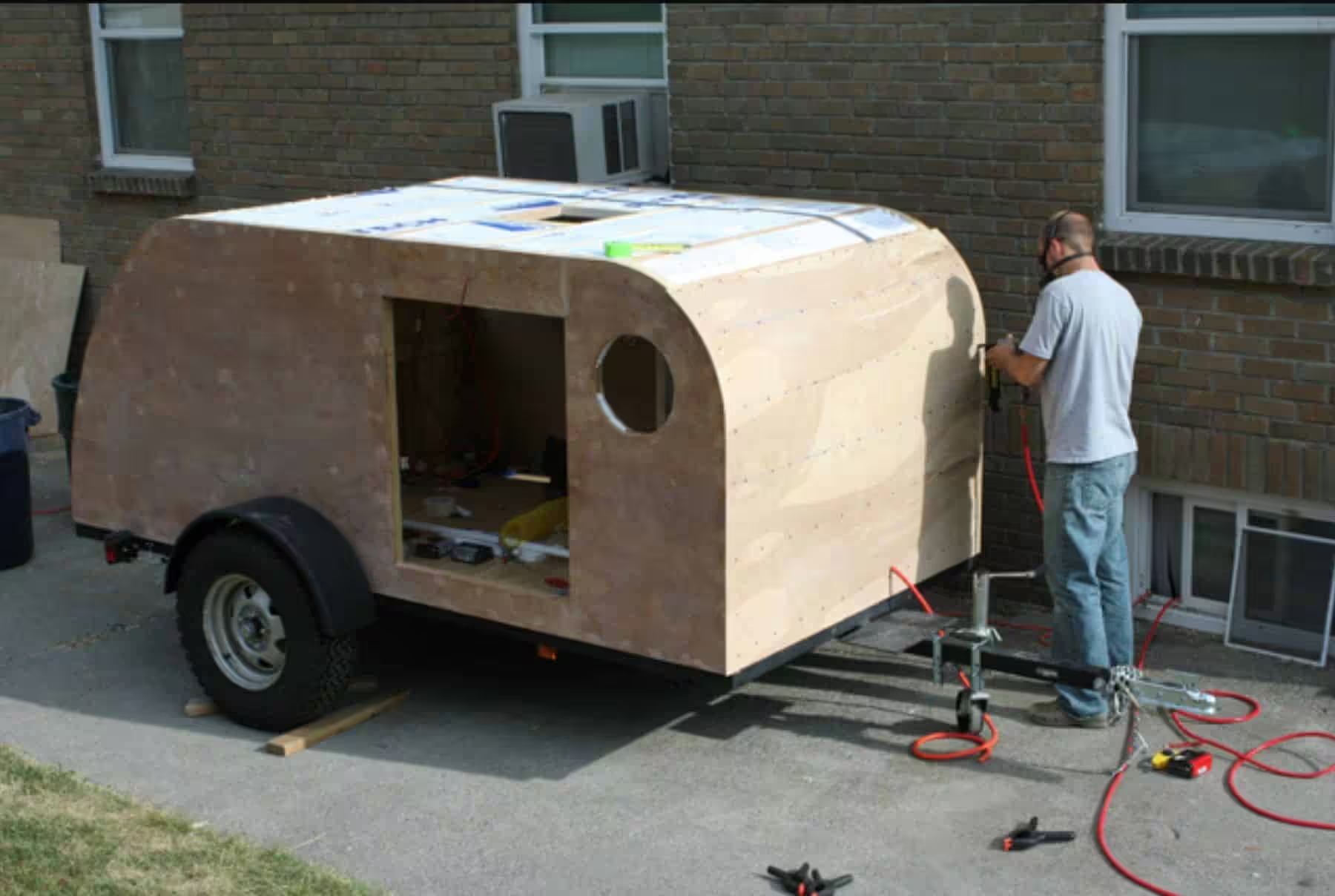
Yep, camper trailers have mechanical parts. And just like every mechanical part ever invented, they face wear and tear and will need to be inspected. Let’s look at some of the common ones:
Front and rear-fold campers have winches, either hand or 12V-operated, that require upkeep. Check it winds in and out (duh) and ensure the free spool is in working condition. Also, check that the cable or rope is not damaged, the 12V solenoids are not gunked up and it is in otherwise good nick.
Pro tip: bring a jack and prybar along with you to your inspection of a prospective purchase. Raise each wheel individually off the ground and check for play in the bearings by grabbing the tyre at 6 & 12 o’clock and giving it a good shake. A little play is ok, more than a few millimetres means the bearings are either loose or, more likely flogged out. Also take the trailer for a tow test, feeling for the trailer brakes effectiveness. Upon return give the wheels a touch test to see how hot they are. If they’re anything more than warm, there are problems.
While you have the wheels in the air, get underneath with your prybar and give the suspension a good levering at its pivot points. You’re looking for any cracks or stress indicators in the bushes, which may indicate they’ll need re-doing. Likewise, inspect the shocks closely. A fine misting of shock oil is ok, but if there’s an obvious leak then they’ll almost certainly need replacing.
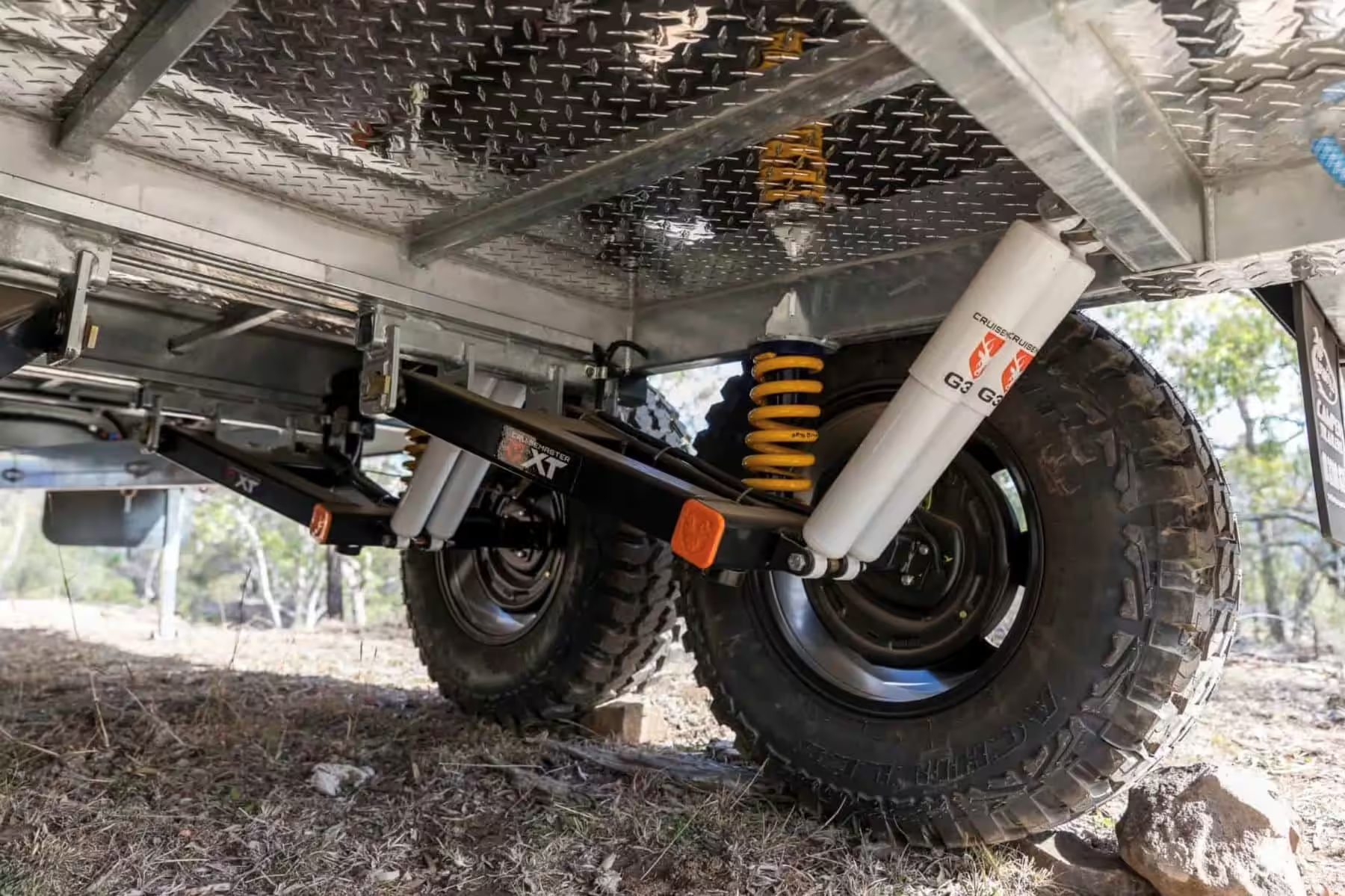
Check the hitch for any obvious signs of abuse or old age. Some off-road hitches have a poly block that can wear or become UV damaged over time, while others may seem ok but haven’t seen a grease gun since the day it rolled off the showroom floor. Likewise the frame, check carefully for cracks or deformation at all welded areas and the drawbar. Splits in a weld can be difficult to see, so taking your time and looking closely can be worth it.
New campers have gone through a technological boom like nothing we’ve seen over the last few years. Tellies, AC, microwaves, coffee makers and poker machines (probably) are all readily available as standard. This is largely thanks to lithium battery technology, and while this isn’t the time or place to get into that, be warned that getting this stuff wrong can be costly, to say the least.
Bring a multimeter with you on inspection and make sure everything works as it should. Ensure all electrical connections are properly crimped and soldered and any wiring is sheathed. If it passes through a wall, make sure it has the right-sized grommet.
If it’s apparent that the previous owners fancies themselves an auto-electrician and there’s dodgy wiring all over the shop, it may be worth getting a qualified sparky to check the work, use it as a bargaining chip, or just walk away. We’ll leave that one up to you, depending on how heinous it looks.
With anything running off gas, make sure the connections are all tight and leak-free (a spray bottle of soapy water is your besty here). Also, check the shut-off cocks and, obviously, make sure all the burners work. Also check the gas bottles are in date and that the holders are in tidy order. Keep in mind that any updates to the bottles will require LCC27 fittings, so factor that into your cost projections.
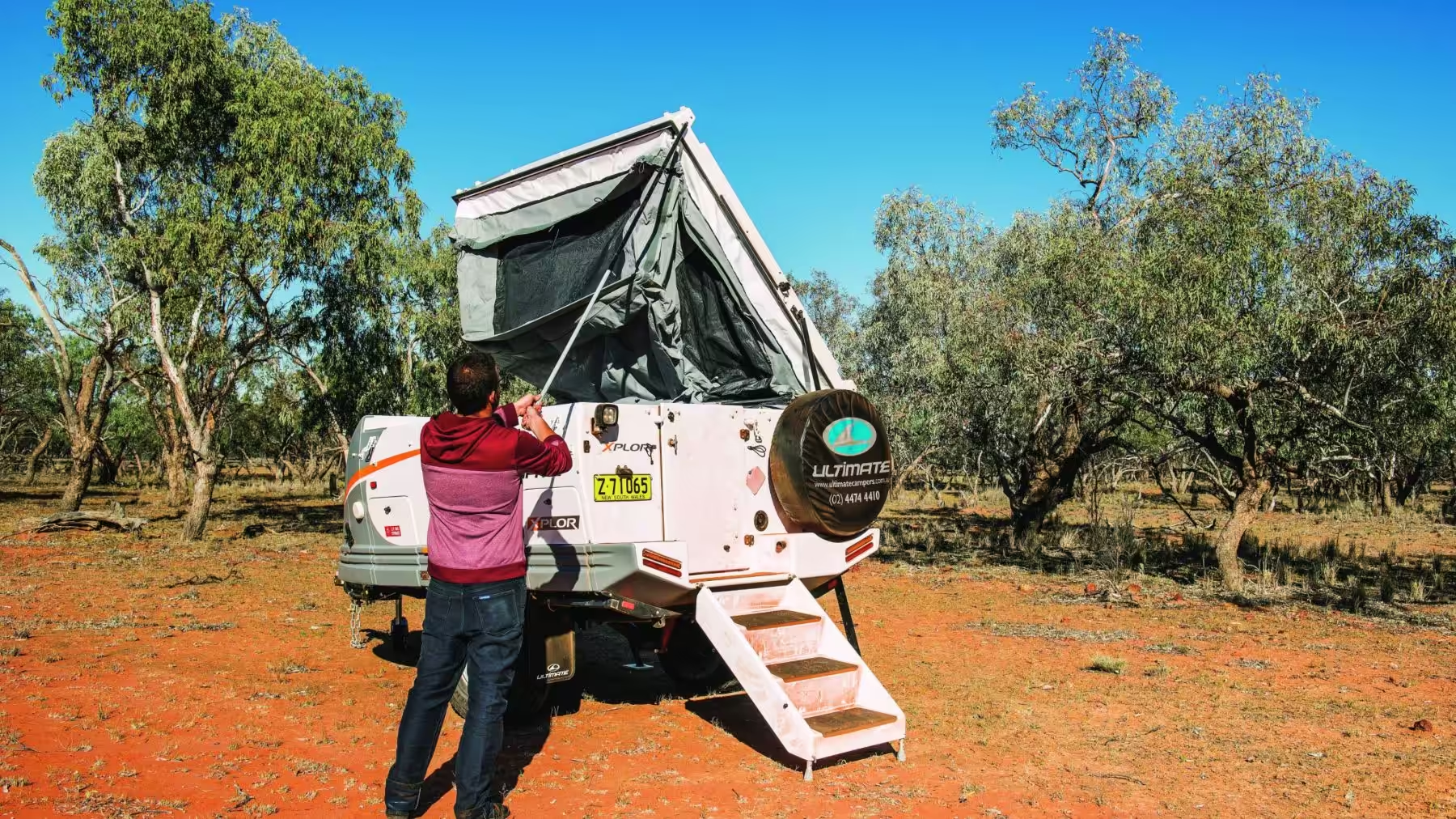
Is the canvas mouldy? Evidence of leaks? Is the insulation and FRP all in good order? Is the chipboard chipping? Are the doors hanging on by a single hinge? The things you’ll need to check will largely depend on the specific camper you’re looking at, but be sure to have it completely set up as part of your inspection and give everything a thorough going over.
Do the tent seams have sealant on them or look like it’s never been applied? Are the zippers well-lubed and as new, or do they look rustier than a meth-head’s smile? Are all of the tent bows in solid condition, or are they bent and haggard? Do the windows open and shut smoothly, or are they more rickety than Joe Biden navigating a set of stairs?
You get the idea, look at everything and never take any seller’s word on anything. It’s not a question of trust so much that it’s a question of familiarising yourself with a major purchase before you pull the trigger. And if you find a few questionable areas you don’t have to write that particular camper off, use it as a bargaining point for haggling. Take a look at how much it costs to replace a set of wheel bearings – the couple hundo may not be a deal breaker for you and could allow you to get the trailer for $500 cheaper.
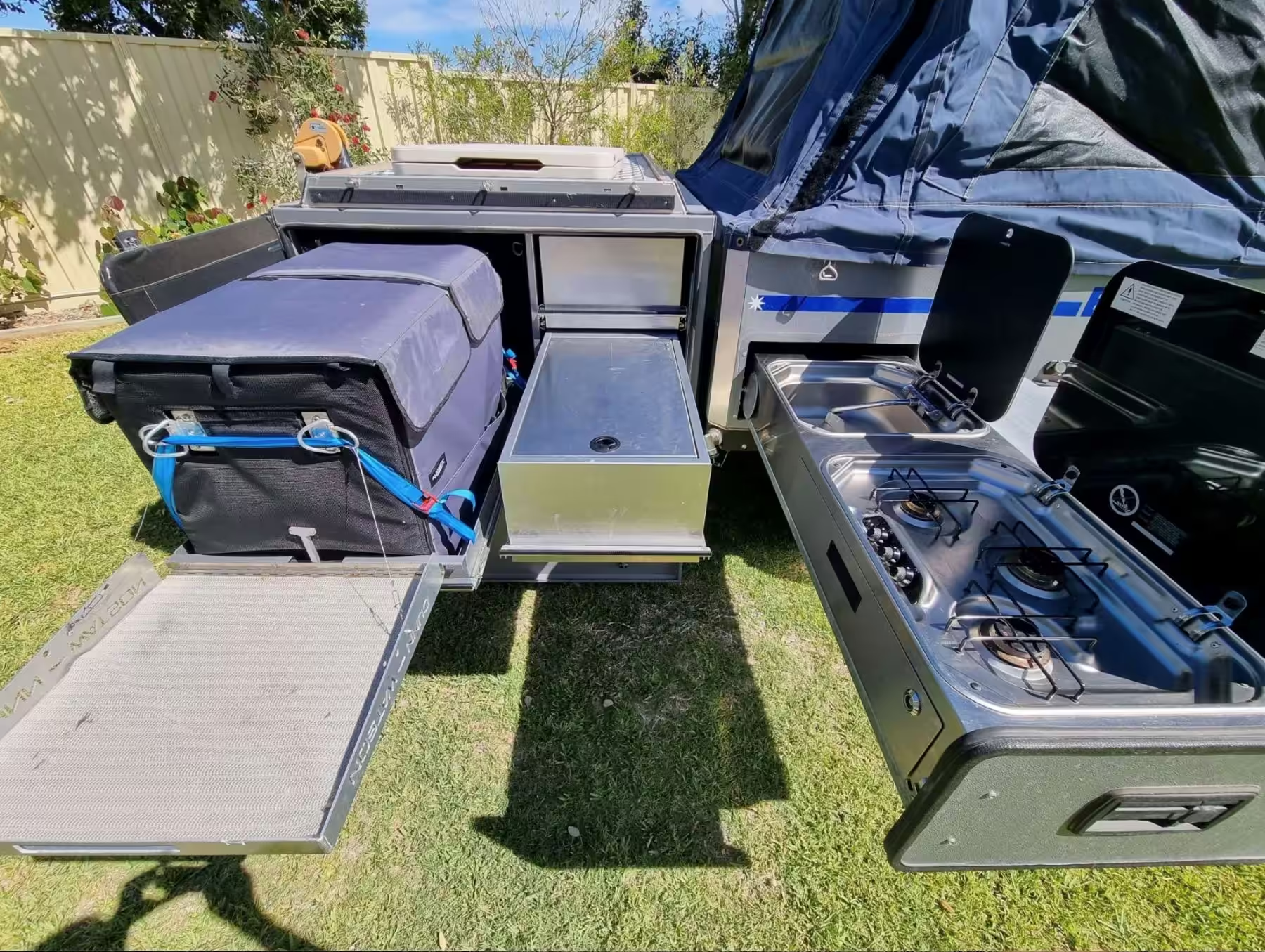
But, as Uncle Kenny says, know when to fold `em and when to walk away as well. Replacing the entire tent section (assuming the manufacturer has the patterns available) of a rear-fold can be a headache (unless you’re getting the trailer for next to free).
Really, there are plenty of great second-hand campers on the market and when it comes to saving some dough, buying used is a tried-and-true method. Take your time and learn what the common issues are. You’ll be amazed how quickly you become an expert in the ups and downs of camper trailer purchasing.
